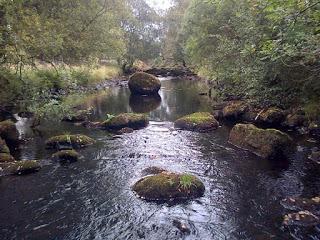
© PiP
An ambitious project to save one of our most precious molluscs is in the running for a prestigious national award.Pearls in Peril (PiP) is a finalist in the 2017 River Restoration Centre (RRC) UK River Prize. The judges selected the project as ‘partnership and multiple benefit project category winner’ along with three other finalists. The overall winner will be announced at the RRC’s annual conference in Brighton on 4 April.PiP is a large and complex conservation project with 22 partners, and the EC LIFE+ Nature fund, that has been working throughout Great Britain to restore river habitats for freshwater pearl mussels and their host salmonids. The UK holds many of the largest remaining pearl mussel populations in Europe. The project’s work has extended from the Cairngorms, to the Outer Hebrides, to the Lake District and Snowdonia, as well as many other places in between.Iain Sime of Scottish Natural Heritage (SNH), who chairs the project steering group for the nation-spanning work, said: “It is a great honor to be chosen as a finalist and speaks volumes for the sheer hard work and dedication that have gone into this project.“Work has extended across 21 rivers designated as Special Areas of Conservation (SACs) for pearl mussels. Freshwater pearl mussels are critically endangered in Europe as a result of illegal activities, habitat damage and water quality issues.“We need to conserve our pearl mussels – they are an important indicator of water quality and if you have good-quality water, you then have good-quality angling and other water-based pursuits which add to the economy.”PiP is a top priority with river basin management plans and for the Scottish Biodiversity Strategy route map 2020, to deliver substantial biodiversity benefits and restore river function.Work has included planting over 70km of woodlands along riverbanks, reducing pollution from fields and forests, and restoring miles of river channels. The project has also launched ‘riverwatch’ schemes in Scotland to reduce the risk of wildlife crime. An education programme, Pearls in the Classroom, is helping to raise awareness among more than 4,000 schoolchildren; and the project has helped young pearl mussels complete their unique lifecycle by ‘encysting’ more than 1000 wild salmon and trout with pearl mussel larvae.The Pearls in Peril project is part of a long-term strategy to halt the decline in the status of freshwater pearl mussels in the UK. It is also a critical component in helping to return many Special Areas of Conservation for pearl mussels to ‘favourable condition’. More information is available on the project website www.pearlsinperil.org.uk .
